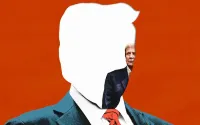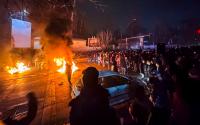Published on Sunday, September 19, 2004 by the Observer/UKKatharine Gun
Twice this year I have found myself at the center of media interest. First when I was on trial at the Old Bailey, charged under the Official Secrets Act because I revealed details of an American plan to bug the phones of delegates to the United Nations Security Council.
And now, six months on, it's happened again. Last week's Observer reported the formation of the Truth-Telling Coalition, a group of 'whistle-blowers' from several countries set up to offer support and advice to people like myself. I, like many others, found myself in possession of knowledge about something which was wrong and which the public had a right to know about but which I was prevented from revealing because of the laws, rules and regulations to which I was subject.
What has to be understood is that most whistle-blowers are not natural activists - this one certainly wasn't. We usually work in anonymous jobs, far from the spotlight. We are not campaigners, or journalists, or wannabe celebrities, craving a platform. Our conscience tells us we have to reveal what we know. We do that, we blow the whistle and, overnight, the whole media circus descends on us.
I'm writing biographically because what hit me, so powerfully, was how alone I felt after I had taken the decision to 'go public'. I'm not a politician; I don't have a well-organized PR machine to craft my every word. I'm just your average citizen who never expected to be in a situation remotely like this. I was incredibly lucky in that I had Liberty, the human rights group, backing me and it was able, to some extent, to 'manage' all the exposure I was receiving. But, nothing prepares you for doing an interview with Jeremy Paxman.
So one reason for forming our Truth-Telling Coalition was to help people like me hold their lives together when the going gets tough and, honestly, it does.
Working at GCHQ was a relatively easy, reliable job. As long as you always toe the 'party line', you are more or less guaranteed a job for life. An 'iron rice bowl', as the Chinese would say. It was therefore a huge decision I took which led to me being arrested, my house searched, being sacked and finally charged.
The minute an article mentioned that a 28-year-old woman had been arrested, I felt as though I had a big sign on my forehead, marking me out. I kept a low profile, stayed at home a lot, many times with the curtains closed, and hoped that no one would find out where I lived. Any knock at the door would start my heart racing.
One day, a friend decided to drop by unannounced. I hid in a windowless part of the house, not daring to open the door. It was only as I heard the familiar purr of her car engine that I peeked through the curtains and relaxed. For almost a year this went on. Sometimes I would relax to the extent that I tried to apply for a low-paying shop job, but I inevitably struggled with how to answer the employer's questions about my employment history.
The boredom of doing nothing, of not being capable of doing anything because of the fear of exposure and the constant cycle of anxiety kept me in a frustrating and confidence-sapping limbo. My family and friends were there for me, but no one was in my shoes. I prayed with my whole being that I wouldn't be charged. In fact, everyone told me it would be sheer madness for them to charge me, but in November 2003, the call came.
It's a call that will happen again, not to me, but to others who have taken a similar decision to mine. Whistle-blowers who have decided to speak out.
I was talking about my own experiences to Daniel Ellsberg, the celebrated Vietnam War whistle-blower, earlier this month and it was out of our conversation that came the idea to set up the Truth-Telling Coalition.
Daniel had invited me to attend a symposium on truth telling at the American University in Washington DC. It was during that visit that I met former FBI employees Coleen Rowley and Sibel Edmonds, Major Frank Grevil from the Danish intelligence community and others who have spoken out about the abuses, cover-ups and lies that our respective governments have peddled before and after the invasion of Iraq.
We felt that in order to encourage more of our former colleagues to 'speak truth to power', we had to show that we were united and willing to support them.
How does one judge when to break their oath of secrecy? For some people there is never a when. For them, breaking the Official Secrets Act or other secrecy laws is fundamentally wrong. I believe that is simplistic and naïve. To take that position is to assume that our government representatives are always, without a shadow of a doubt, in the right; that they are always acting in our best interests, that they are always behaving in accordance with national and international law. I doubt that we have seen more examples than we have recently, that this is patently not true. And we are still kept in the dark as to what the Attorney General's full legal advice was before the war. What are they hiding from us?
I had to accept that I would never be anonymous again. I still fear being recognized in the street, cringe at the thought of everyone knowing my name. Yet the fact that charges were dropped in February 2004 is, I believe, vindication enough that I did the right thing. Even more so now that Kofi Annan has stated that the war was illegal.
Did I have a part to play in the dropping of the UN resolution sanctioning war? I do not know. However, I am at peace with myself that at the very least, a totally false and un-representative 'yes' vote did not happen, that the most dangerous precedent of a legal and legitimate 'pre-emptive war' was averted.
I am not a natural activist, I am not a political animal, I do not enjoy confrontation, and I do not delight in high-octane political debate. I did not make my disclosure about the deceitful manipulation of the UN before the invasion of Iraq began in order to garner fame or fortune. I am just a very ordinary, concerned individual who could not sit back in silence while the leaders of the UK and the US plotted about 'shock and awe', about wiping out their former ally and client Saddam Hussein.
It is not that I in any way sympathized with Saddam. How could I? The man was a murderous tyrant. My sympathies lie with the Iraqi people.
I will only apologize to an Iraqi who lived under the reign of Saddam and was living in Iraq up to and during the invasion, and truly wanted to see the US and its allies come and drop bombs on his/her country. If there is such a person, I apologize unreservedly to them for hoping that my disclosure could have stopped the war. I am lucky never to have lived through the horror of the reign of a despot, or suffer under a decade of crippling sanctions, or watch as my country disintegrates.
Most of us sitting here in the West are in the same position as me. Why, then, do we feel we have the God-given right to impose so much suffering and terror on another nation?
The Iraqi people did not deserve Saddam, but we all know how the West propped him up for years. When will we learn that our continued meddling in other people's affairs inevitably comes back to haunt us? If we are going to do better in the 21st century, then surely some lessons from the 20th century should be of uppermost importance? The first step would be to uphold basic international rule of law, to set about reforming and restructuring the UN and to ensure that the interests of one nation do not override the security of another.
There will never be anyone who could realistically champion the abolition of the intelligence services; therefore, secrecy laws will always be necessary in the protection of national security. Until we can have 100 per cent trust in our elected representatives, until we know for sure that the intelligence services are not going to abuse their position of power through the blanket of official secrets, we will surely continue to have decent, moral public servants who face that critical moment of overwhelming clarity of conscience - 'the truth must out'.
I hope that our coalition will make it easier for people to speak out. Here in the UK we will be campaigning for a fundamental reform of the Official Secrets Act. It must be changed to distinguish between espionage breaches which genuinely endanger national security and public-spirited whistle-blowing.
The government will tighten the noose, do all it can to 'cover up', as will the big corporations. But there will always be people willing to put their careers and liberty on the line in the pursuit of truth and justice.
Readers wishing to know more about the Truth-Telling Coalition should go to www.truthtellingproject.org






